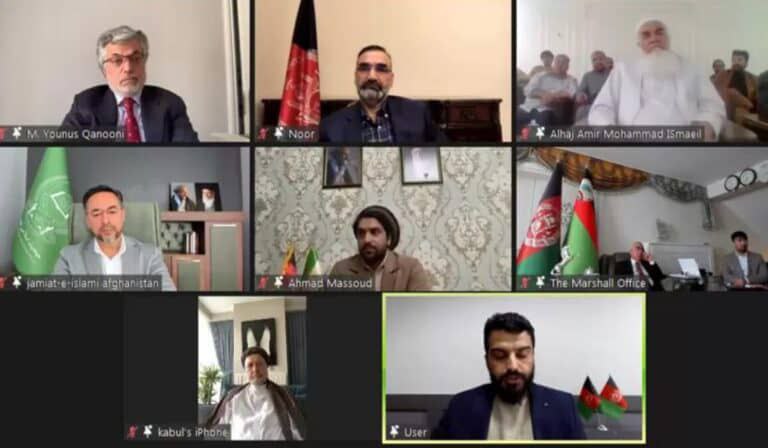The National Resistance Council for the Salvation of Afghanistan, a coalition of political figures in exile, denied engaging in formal negotiations with the Taliban, though it acknowledged maintaining informal contacts with the group.
Hassan Yasa, a spokesperson for the council, clarified that while there have been some communications with Taliban factions, a formal negotiating delegation has not yet been established. “The Taliban do not believe in dialogue, and no official talks have been held between the Resistance Council and the Taliban,” Mr. Yasa said. He added, “However, some contacts have been made with various factions of the Taliban, and these contacts are ongoing.”
The Taliban, for their part, denied any knowledge of talks with the Resistance Council. In a statement to Amu, Taliban spokesman Zabiullah Mujahid said he was unaware of any discussions with the council.
These remarks come amid reports that the Taliban and the Resistance Council have engaged in negotiations, though no details have been confirmed. Meanwhile, Afghan women and girls continue to call on the international community to prioritize human rights in any engagements with the Taliban.
Masouda Kohistani, a member of Afghanistan’s women’s protest movements, expressed doubt about the Taliban’s willingness to engage on these issues. “The Taliban do not believe in human rights values or in inclusive governance,” Ms. Kohistani said. “For more than three years, there have been no constructive discussions on human rights or gender equality because the Taliban do not believe in these values.”
As frustration grows, Afghan citizens are increasingly calling for the establishment of an inclusive government. “The Taliban must address the demands of the Afghan people,” said a Kabul resident. “They should accept peace negotiations and form a government that represents all segments of society, including women and minorities.”
Three years after the Taliban’s return to power, efforts to achieve progress in peace talks with opposition groups have largely stalled. Observers say the Taliban’s uncompromising stance—demanding absolute loyalty to their leader, Hibatullah Akhundzada—has complicated any potential negotiations with political or military opposition. For the Taliban’s opponents, this position remains a significant obstacle to meaningful dialogue.




